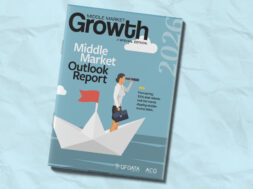PE Fundraising Outlook Fuzzy as LPs Contend with Coronavirus Disruption
LP investors are taking to heart lessons from previous downturns as they evaluate their private equity commitments and chart a path forward.

As they grapple with the fallout from the COVID-19 outbreak, many private equity firms have put new deals on hold. Similarly, fundraising activity has slowed, as general partners and limited partners alike assess the damage and focus on their existing portfolios.
Although it’s too early to say what impact the pandemic will have on fundraising over the long term, limited partner investors are taking to heart lessons from previous downturns as they evaluate their private equity commitments and chart a path forward.
As the coronavirus spread prompted lockdowns across the U.S., private equity fundraising activities took a backseat for many investors. Although some funds in advanced stages have closed, many have been put on hold, due in part to LP investors’ focus on their existing portfolios.
Alicia Cooney, partner and co-founder of Monument Group, a private fund placement agent, recalled a recent conversation with an LP investor that had expressed interest in a particular private equity fund. Although it planned to discuss the opportunity at an upcoming investment committee meeting, its priorities changed because of the pandemic. “The IC meeting has turned into: How do we think our public portfolio is doing?” the client told Cooney.
Planned fundraising activities that haven’t yet launched will almost certainly be pushed back, in deference to LPs’ priorities and the nature of the public health crisis. “You’ve got to be respectful of people,” Cooney says. “You’re tone-deaf if you call someone right now and say, ‘I just sent you a PPM.’”
It’s unclear when fundraising activity will pick back up, but data suggests that LPs’ private equity commitments could slow or become more selective over the course of the year.
“Everyone is far more attuned to the denominator effect than they were 12 years ago.”
Alicia Cooney
Partner and Co-founder,
Monument Group
According to survey data published on April 8 by the Institutional Limited Partners Association, 6% of respondents said they are slowing their private equity commitments generally, while 7% are pausing all new commitments. Meanwhile, 23% said they were unsure about the impact on commitments and are evaluating the situation, and 26% reported that no changes are expected.
Still, LPs are well aware of the strong returns that private equity can generate through investments made during an economic downturn. According to Whit Matthews, senior investment director of private equity at global asset manager Aberdeen Standard Investments, the Great Recession demonstrated the importance of staying the course and deploying capital on a consistent basis.
“Funds raised right now will get deployed over the next four to five years. So in many ways, investors and GPs sitting on dry powder today may be those GPs best positioned to take advantage of the current opportunity set as it presents itself,” Matthews says.
Lessons Learned
Historic declines in public indexes in late February and early March elicited concern from LPs that their portfolios could become weighted too heavily toward private equity.
Responding to the ILPA survey, 8% of LPs said they were “extremely concerned” that they would exceed their allocation limit for private equity—a phenomenon known as the “denominator effect.” When the value of public equities declines, the share of capital allocated to private equity can exceed the ratio that the investor has set for itself.
Yet more than half of respondents—52%—said they are merely “somewhat concerned” and continue to monitor the situation, having faced a similar scenario during the Great Recession. “Everyone is far more attuned to the denominator effect than they were 12 years ago,” Cooney says.
A PitchBook report published this month noted that over the last decade, some LPs have increased the flexibility of their investment policies. “Instead of a hard 20% target with a tight allowable band of drift, ranges were widened,” the report’s authors wrote. Other LPs added language to allow the portfolio allocation to stray outside its boundaries for two consecutive quarters.
Some LP investors were cushioned further from the denominator effect because they were at or below their allocations to private markets at the start of the year, according to PitchBook.
Liquidity may be a greater cause for concern for some LPs as they evaluate their private equity commitments. For the foreseeable future, GPs are expected to request more capital than they return to investors. “If you think about past corrections, it stands to reason that capital calls are going to outpace distributions for a little while here,” Matthews says.
Portfolio companies will need equity to stay afloat, prompting GPs to request money from their investors. At the same time, fewer companies are being sold, so LPs won’t be receiving proceeds from exited investments.
For certain categories of limited partners, other cash constraints could limit their ability to invest. As one example, Cooney points to hospital endowments, which have grown in recent years and increased their commitments to private equity. But treating cases of COVID-19 has tapped hospitals’ resources and curtailed more lucrative medical procedures. With uncertainty around expenses, their endowments might pull back on investment activities.
Fortunately, LPs that previously committed to private equity funds but now need cash can turn to the secondaries market, where investors sell stakes in PE vehicles. According to reporting from Private Equity International, transaction volume in the secondaries market reached a record-high $80 billion in 2019. The market has grown dramatically over the last several years, presenting cash-strapped LPs with an option not widely available in the past.
“We do believe that, even for liquidity-constrained limited partners, there are avenues to take advantage of that weren’t necessarily there in prior corrections,” Matthews says.
The novelty of this pandemic-induced economic crisis has made forecasting impossible. Rather than predicting the future, LPs are drawing on lessons from the past and making decisions one day at a time.

Kathryn Mulligan is the editor-in-chief of Middle Market Growth.


